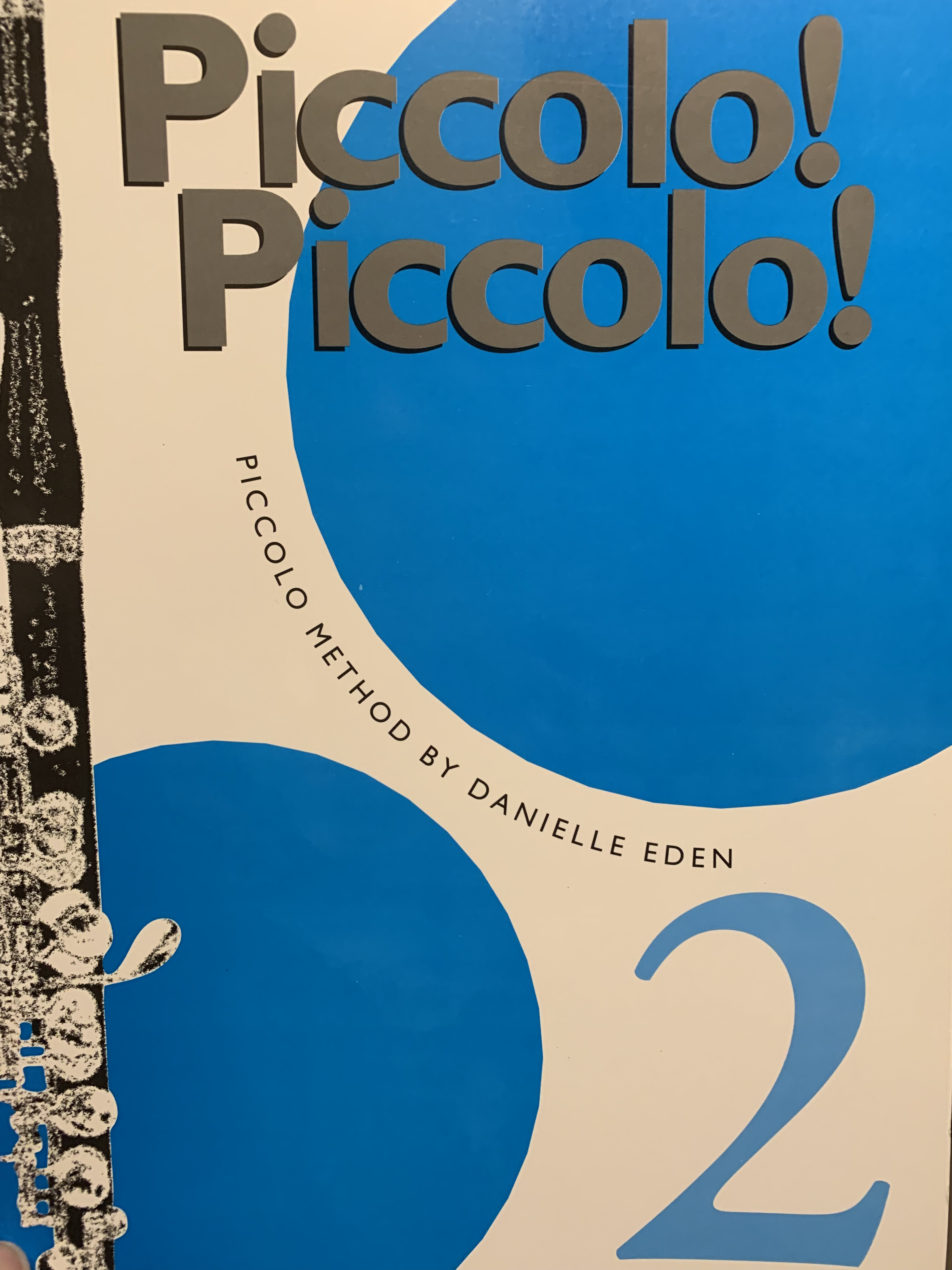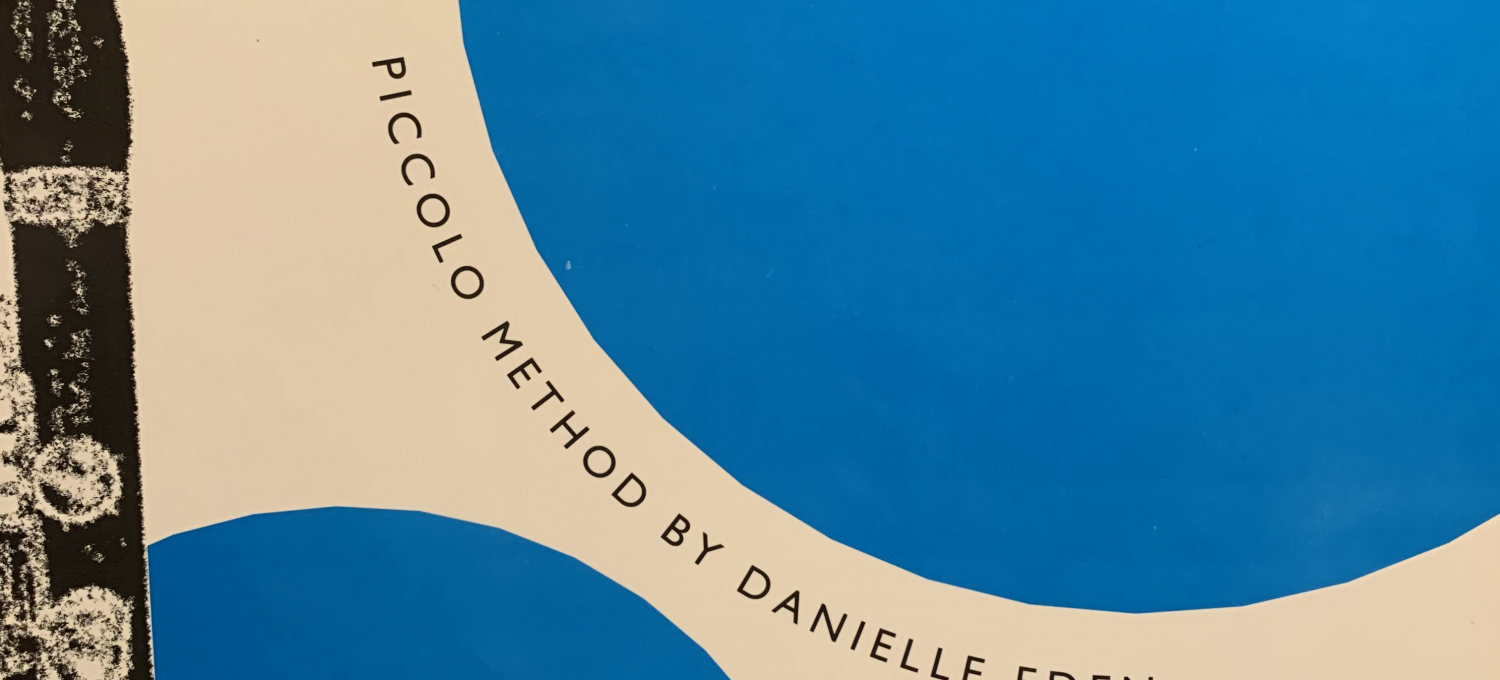Piccolo! Piccolo! – Book 1 and Book 2
Dr. Danielle Eden is a graduate of the Royal Academy of Music, the University of London, and the Sydney Conservatorium of Music. Her flute teachers include Sebastian Bell and William Bennett; she studied piccolo under Frank Nolan. Dr. Eden, an Associate of the Royal Academy of Music, has performed with the Sydney Symphony, the Australian Opera and Ballet Orchestra, and the Orana Trio. She serves as flute professor at the Australian Institute of Music and the University of Sydney.
Piccolo! Piccolo! is a complete method for piccolo published in 1994 by Just Flutes in the United Kingdom. Eden suggests that players should approach the piccolo from the start as a different instrument from the flute. Her explanation for this statement is that the piccolo requires practice, and limiting practice to the flute will not produce the desired progress on the piccolo. She also gives her suggestions as to the application of her method. The method is divided into sections by different styles of pieces, but it is not necessary to work through a section in its entirety before moving to the next section.
Dr. Eden provides four warm-up exercises and three scale study suggestions with alternate rhythms and articulations. She has chosen a wide selection of melodies from a broad range of sources. The melodies contain a variety of rhythms, articulations, and tonalities and she provides information about some of the melodies’ origins as well as historical information. She includes some Baroque dance styles giving suggestions regarding performance and on what aspects the player should focus. She also includes a few duets which make excellent ensemble studies with a colleague or teacher. The final page of Book 1, a brief introduction to the upper register discusses some of the difficulties inherent in the extremes of the piccolo. She makes excellent points about active air support, performing confidently, and recommends returning to the beginning of Book 1 to play the first exercises up the octave.
Piccolo! Piccolo! – Book 2 
Book 2 is more focused on building technique than Book 1. The second volume provides suggestions about how best to use the method. Dr. Eden starts with a brief introduction focused on extending the register and continues the discussion from Book 1. She includes more intensive and involved warm-up exercises that require more foundational techniques than her first volume. While there are a few melodies that encourage the player to implement musicality with technique, she intersperses scale work throughout Book 2, including minor tonalities. She also focuses more on chordal studies which include the major, minor, augmented, and both diminished and dominant seventh chords. The etudes that she includes in Book 2 are more rhythmically challenging, lengthier, and include larger leaps to high registers. The studies are progressive and has a section specifically on written Bb6, B6, and C6, providing recommended fingerings for these notes. There is a very short section at the end of Book 2 that presents two familiar orchestral excerpts: Semiramide by Rossini, and Scherzo from Symphony No. 4 by Tchaikovsky. She dedicates the last two pages to some extended techniques and provides a microtone fingering chart for piccolo.
I highly recommend these two volumes as excellent additions to a piccolo players library. Many of these methods do overlap but each of the methods that I choose to share with our readers has something that the others do not. The difference may only be a fresh perspective on how to approach a challenging concept, but it might be something completely new and fun to experiment with, like a microtonal fingering chart!


Excellent books. In my repertoire for Piccolo Studies with the Nicola Mazzanti Piccolo Method and Trevor Wye/ Morris Practise Book for the Piccolo . Also look at Jan Gippo’s excellent book The Complete Piccolo.